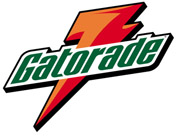From Sports Drinks to Tractors, Reusable Packaging Nets Numerous Savings
 California, USA - By switching from wood to plastic pallets, Gatorade’s Oakland bottling plant has eliminated waste from damaged products, cut down on labor, made the facility safer and reduced trucking emissions with lighter loads. But it all originated from an economic decision.
California, USA - By switching from wood to plastic pallets, Gatorade’s Oakland bottling plant has eliminated waste from damaged products, cut down on labor, made the facility safer and reduced trucking emissions with lighter loads. But it all originated from an economic decision.“The key driver was customers refusing finished product because of inconsistencies in the wood pallets: missing pieces of wood, nails sticking out,” Brian Finegan, process improvement engineer at the facility, told the attendees at yesterday’s Choose Reusables! forum in Oakland, Calif.
Organized by the Reusable Packaging Association and Stop Waste Partnership, the event outlined the environmental and economic issues related to using reusable transportation and storage packaging, sharing stories from companies as diverse as Ghirardelli Chocolate, Safeway and John Deere.
The benefits of durable reusables over single- or limited-use packaging are numerous: lower packaging cost, reduce labor, less product damage, transportation efficiencies, improved worker safety, efficient loading and more.
Though there are still challenges to face and times when reusables are not the best option. Safeway has had to deal with people stealing its reusable crates, trays, pallets and other forms of packaging. And although Ghirardelli has saved over 1,979 tons of corrugate by using plastic totes to store and move individual chocolate squares, the company still uses corrugated boxes to ship many products to stores.
Another reason companies are switching to reusables is pressure and encouragement from government to cut down on sending waste to landfill. The Reusable Packaging Association (RPA) aims to help companies make that transition to reusables, guiding them to understand what issues, costs and impacts to take into consideration. “We are in the right place at the right time. This is not a trend,” said Fred Heptinstall, president of the RPA.
But to make the case for reusables, companies must recognize what they are losing or missing out on by producing waste that gets thrown away. “You can’t just prop up the landfill as some demonic icon and expect people and businesses to throw themselves into the cause,” said Margo Reid Brown, chair of the California Integrated Waste Management Board.
StopWaste.org in Alameda County, Calif., has found that the top five wastes going from businesses to landfill are food, paper, uncoated cardboard, unpainted wood and plastic film. The last three can be greatly reduced with reusable packaging. Nationwide, containers and packaging make up 31 percent of the solid waste stream. “Waste is a missed opportunity for environment and economic benefits,” said Tom Huetteman, associate director of the U.S. EPA waste division.
Making the switch, though, takes some research and analysis to make sure the final decision is the right one both for business and the environment. Packaging qualities like recycled content and materials “in themselves are not environmental benefits,” said Beverly Sauer of Franklin and Associates, which provide life cycle analysis services, “It depends on the specific application.”
Franklin and Associates, though, has found that when corrugated cardboard fresh produce packaging is compared to plastic reusable packaging, the reusable uses an average of 39 percent less energy, makes 95 percent less waste and results in 29 percent fewer greenhouse gas emissions.
Gatorade found myriad benefits after testing reusable pallets. The company runs two bottling lines at its Oakland plant, started a trial with plastic pallets on one line in July last year, and switched the other in January.
The company has reaped savings beyond the initial goal of having no loads refused due to shoddy pallets. Employees no longer have to inspect and repair wood pallets, which could break and leave pieces of wood and particulate on the floor and in the air. They’ve also eliminated having to dispose of products damaged when pallets break. “(After the switch) we didn’t have that downtime of pallets tipping over,” Finegan said.
Reusable packaging has applications beyond things like chocolate and drinks. John Deere uses a variety of plastic totes, metal crates, wire baskets and custom racks to ship products big and small.
The company tags each one with a bar code to keep track of where they are, and has started to add RFID (radio frequency identification) tags to new packaging to keep even more up-to-date information on the items, said Lyle Schmitt, manager of global logistics packaging and quality. The company’s biggest savings has been in reduced packaging, with smaller savings from lower transportation costs and packaging disposal.
You can return to the main Market News page, or press the Back button on your browser.

